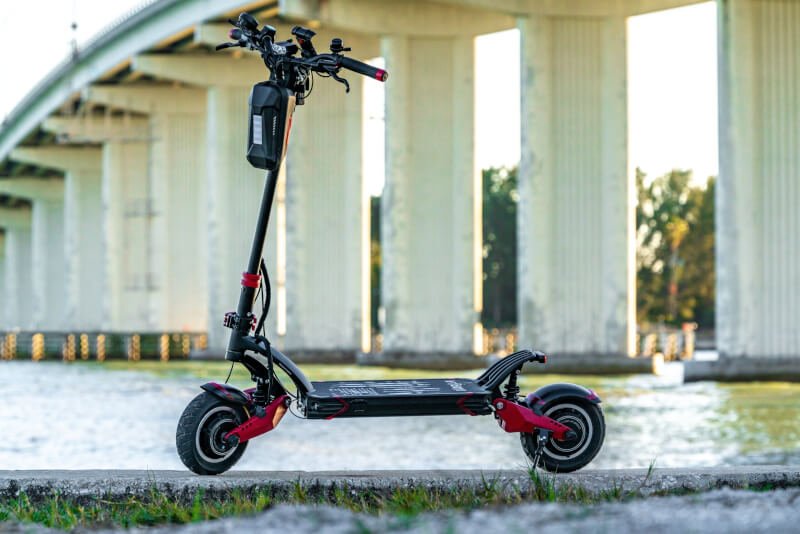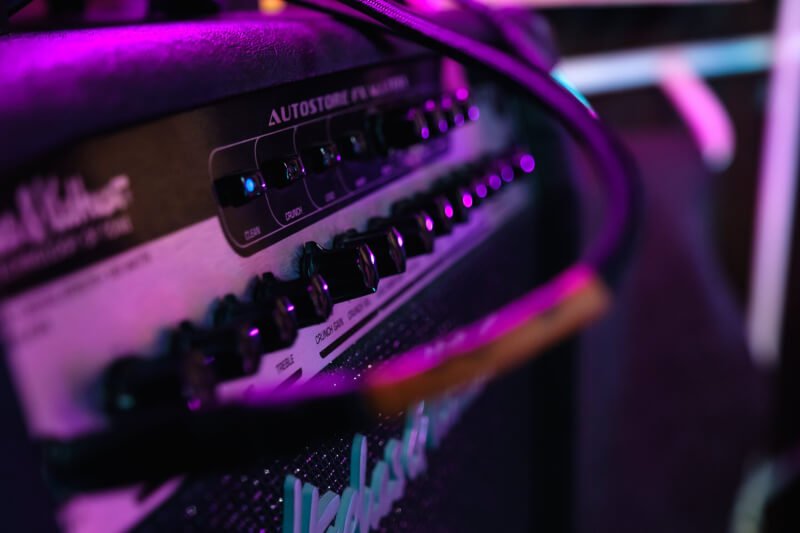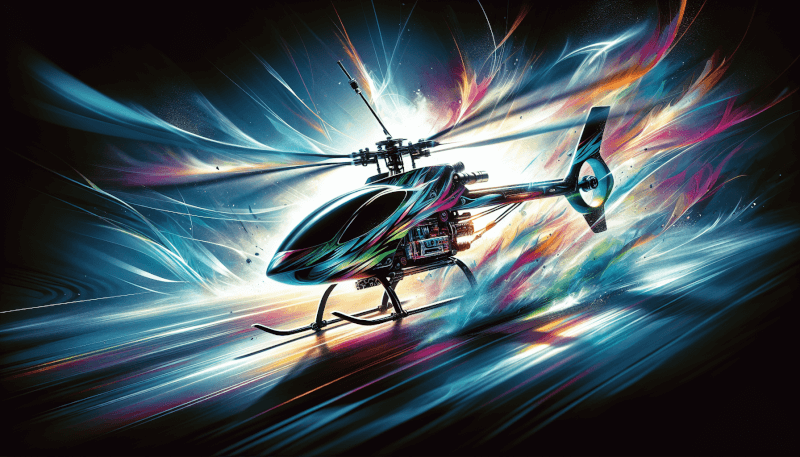So, you’ve always been fascinated by remote control helicopters and you’ve finally decided to take your love for flying to the next level by participating in RC heli racing competitions. Congratulations on taking this exciting step! In this article, we’ll provide you with some helpful tips and advice on how to get started in these exhilarating races. Whether you’re a complete beginner or have some experience in flying RC helis, we’ll guide you through the process of finding races, choosing the right equipment, and mastering the skills needed to compete at a competitive level. Get ready to soar through the air and experience the adrenaline rush of RC heli racing!

Choosing the Right RC Heli
When getting started in RC heli racing, it is crucial to choose the right helicopter for your skill level. Consider your experience and abilities before making a decision. If you are a beginner, opt for a helicopter designed for entry-level pilots. These helicopters typically have stable flight characteristics and are easier to control. As you gain more experience, you can move on to more advanced models that offer greater maneuverability and speed.
In addition to skill level, the size of the helicopter is another important factor to consider. Smaller helicopters are generally more suitable for indoor flying or confined spaces, while larger helicopters are better suited for outdoor flying. Take into account where you plan to fly most often and choose a size that aligns with your preferences and requirements.
When it comes to choosing between single rotor and dual rotor helicopters, it is essential to understand the differences. Single rotor helicopters are more common and offer a more realistic flight experience. They are capable of performing a wide range of maneuvers and are generally faster than dual rotor helicopters. On the other hand, dual rotor helicopters, also known as coaxial helicopters, provide more stability and are easier to fly, making them a great option for beginners.
Lastly, evaluate the power source options for your RC helicopter. The two main options are electric and fuel-powered engines. Electric helicopters are quieter, cleaner, and easier to maintain. They are also more convenient as they do not require fuel refills. However, fuel-powered helicopters offer longer flight times and tend to have more power. Consider the pros and cons of each option and choose the one that best suits your needs.
Understanding the Competition Levels
RC heli racing competitions are typically divided into different levels based on piloting skills and experience. Understanding these levels will help you identify the appropriate competitions to enter and gauge your progress as you improve.
The beginner level is designed for those new to RC heli racing. This level often features simplified courses and focuses on basic flying maneuvers. It is an excellent starting point for beginners to gain confidence and learn the fundamentals of RC heli racing.
As you gain more experience and hone your skills, you can progress to the intermediate level. The intermediate level introduces more challenging courses and advanced flight maneuvers. This level will test your ability to navigate through obstacles and perform intricate aerial maneuvers.
The advanced level is for pilots who have mastered various flight maneuvers and are looking for a higher level of competition. Courses in this level are designed to push pilots to their limits, with complex obstacles and demanding flight maneuvers. Pilots at this level are expected to have precise control and exceptional flying skills.
For those aspiring to compete at the highest level, the professional level offers the most elite competition. Pilots at the professional level demonstrate exceptional mastery of flight maneuvers and compete in intense races with skilled competitors. This level requires a high level of dedication, practice, and continuous improvement.
Joining a Local RC Club
Joining a local RC club is an excellent way to immerse yourself in the world of RC heli racing. These clubs provide a supportive community of like-minded individuals who share a passion for the hobby. Here are some steps to take when joining a local RC club.
Start by researching local RC clubs in your area. Look for clubs that cater specifically to helicopter pilots and have a welcoming and supportive environment. Online forums and directories can be useful resources in finding local clubs.
Attending club meetings is a great way to get to know the members and learn more about the club. During these meetings, you can observe the activities and ask questions to gain a better understanding of what the club offers. It is also an opportunity to meet experienced pilots who can provide valuable guidance and advice.
After attending club meetings and getting a feel for the club, it’s time to take the next step and become a club member. Most clubs have membership requirements and fees, so make sure to familiarize yourself with these details. Becoming a club member not only allows you to participate in club activities but also gives you access to training sessions and other club resources.
Participating in training sessions offered by the club is crucial for beginners and even experienced pilots who want to improve their skills. These sessions provide structured guidance and mentorship from experienced pilots. Take advantage of the opportunity to gain hands-on experience and learn from those who have already mastered the art of RC heli racing.
Learning the Rules and Regulations
Before taking part in RC heli racing competitions, it is essential to have a clear understanding of the rules and regulations. Familiarize yourself with the competition rulebook to ensure you comply with all the guidelines and requirements.
In addition to competition rules, it is important to understand the safety guidelines that are in place to protect both pilots and spectators. These guidelines typically cover areas such as flight boundaries, spectator areas, and emergency procedures. Make sure you are fully aware of these guidelines to ensure a safe and enjoyable racing experience.
Different events within RC heli racing have their own specific rules and regulations. Take the time to familiarize yourself with these event-specific guidelines to ensure you are prepared and know what to expect. Understanding the event structure and scoring system will give you a competitive edge and enable you to strategize your approaches during races.
Finally, review the equipment requirements for RC heli racing competitions. Ensure that your helicopter and accompanying equipment comply with the specifications outlined in the competition rules. This includes aspects such as weight limits, rotor sizes, and power systems. Being well-prepared with the right equipment will give you a competitive advantage and ensure a smooth competition experience.

Building and Setup
Building and setting up your RC helicopter is an exciting and essential part of the RC heli racing journey. Here are some steps to follow to ensure a successful build and optimized performance.
Acquire the necessary tools and equipment before starting your build. A comprehensive toolkit, including screwdrivers, pliers, and Allen keys, will be indispensable during the assembly process. Additionally, having spare parts on hand can be helpful in case of any mishaps or damage during racing.
Assemble and build your RC helicopter according to the manufacturer’s instructions. Pay close attention to each step and ensure that all components are properly installed and secured. Building your helicopter accurately is crucial for its overall performance and durability. If you are unsure about any steps, consult with experienced pilots or seek guidance from the RC heli racing community.
Once the assembly is complete, it’s time to set up your RC helicopter for optimal performance. Proper setup includes adjusting various parameters such as blade pitch, throttle curves, and gyro settings. These settings can have a significant impact on the flight characteristics and responsiveness of your helicopter. Familiarize yourself with the setup process and consult the user manual or online resources for guidance.
Tuning and adjustments are integral to fine-tuning your RC helicopter’s performance. It involves making small modifications to improve flight stability, maneuverability, and overall control. Experiment with different settings and adjustments to find the configuration that best suits your flying style and racing needs. Keep notes of the changes you make so that you can easily revert to previous settings if needed.
Developing Your Flying Skills
To excel in RC heli racing, it is crucial to develop and refine your flying skills continuously. Here are some tips to help you enhance your abilities and become a skilled RC heli racer.
Start by practicing basic flight maneuvers such as hovering, forward flight, and turns. Mastering these fundamental maneuvers will provide a strong foundation for more advanced techniques. Practice regularly to build muscle memory and familiarize yourself with your helicopter’s flight characteristics.
As you gain confidence and proficiency, move on to mastering advanced flying techniques. This includes aerobatic maneuvers such as loops, rolls, and inverted flight. Push yourself to learn new maneuvers and gradually increase the complexity and difficulty of your flight routines. Experimenting with different maneuvers will not only improve your skills but also make your flights more exciting.
To improve your control and precision, focus on flying in a controlled manner. Work on maintaining a consistent altitude, smooth transitions, and precise landings. Practice accurate control inputs and strive for smooth and fluid flight movements. Fine-tuning your control and precision will make you a more competitive and skilled racer.
Learning to handle various weather conditions is an essential aspect of becoming a well-rounded RC heli racer. Fly in different weather conditions, such as windy days or low-light conditions, to develop adaptability and learn how to adjust your flying techniques accordingly. By gaining experience in various conditions, you will be better prepared to handle unexpected situations during competitions.

Participating in Practice Sessions
Participating in practice sessions is a great way to refine your skills, gain experience, and connect with other RC heli racers. Here are some steps to make the most of practice sessions.
Locate local flying fields or designated areas where RC heli practice sessions are held. These fields provide a safe and controlled environment for pilots to practice and hone their skills. Search online forums, local RC clubs, or ask experienced pilots for recommendations on the best practice locations in your area.
Attend scheduled practice sessions to interact with other pilots and share experiences. Practice sessions often attract a mix of skill levels, allowing you to observe and learn from more experienced pilots. Engage in conversations, ask questions, and exchange tips and techniques. Building connections with other racers can lead to valuable mentorships and friendships within the RC heli racing community.
Interacting with experienced pilots can be immensely helpful in improving your flying skills. Seek feedback and guidance from experienced racers on your flying technique and performance. They can provide valuable insights and suggestions for areas of improvement. Embrace constructive criticism and use it as an opportunity for growth and learning.
Practice sessions also offer a chance to try out different setups and fine-tune your helicopter’s performance. Experiment with adjustments and settings to find the optimal configuration for your flying style and preferences. Take note of the adjustments you make and their effects on flight characteristics. This knowledge will help you optimize your helicopter’s performance during competitions.
Entering Local Competitions
Once you have gained enough experience and confidence in your flying skills, it’s time to enter local RC heli racing competitions. Here are some steps to help you prepare and make the most of your competition experience.
Find upcoming local RC heli competitions in your area. Check online RC heli racing calendars, community forums, or inquire with your local RC club for information on upcoming events. Participating in local competitions is a great way to gain racing experience and gauge your progress against other pilots.
Register for the appropriate competition level based on your skill and experience. Be honest with yourself and choose a level that is challenging but still within your abilities. Competing at the appropriate level will provide the right balance of competition and growth opportunities.
Prepare and organize your equipment before the competition. Ensure that your RC helicopter is in optimal condition, with all components functioning correctly. Check and double-check your transmitter, batteries, and any additional equipment you may need. Having a well-prepared and organized setup will help you focus on racing and give you peace of mind.
Follow the given competition schedule and be punctual. Arrive at the competition venue early to familiarize yourself with the flight course and event logistics. Take the time to warm up and ensure that your equipment is calibrated and ready to perform.
During the competition, stay focused and give it your best effort. Remember to enjoy the experience and embrace the competitive spirit. Celebrate your achievements and learn from any setbacks or mistakes. Post-competition, take time to reflect on your performance and identify areas where you can improve for future races.

Learning from Experienced Racers
One of the best ways to grow as an RC heli racer is to learn from those who have already achieved success in the field. Here are some ways to learn from experienced racers and benefit from their knowledge and expertise.
Observe and analyze skilled racers during competitions and practice sessions. Pay attention to their flying techniques, control inputs, and strategic approaches. Take note of how they navigate through obstacles and perform intricate maneuvers. Observing experienced racers will give you valuable insights and inspiration to improve your own skills.
Don’t hesitate to approach skilled racers and ask for tips and advice. Most experienced racers are passionate about the hobby and are willing to share their knowledge with fellow enthusiasts. Strike up conversations, ask specific questions, and seek guidance on areas you want to improve. Their guidance and insights can provide valuable shortcuts in your learning journey.
Participate in mentorship programs if they are available within your local RC heli racing community. Mentorship programs often pair beginners with experienced racers who act as mentors. Mentors can provide personalized guidance, help with skill development, and offer support throughout your racing journey. Take advantage of these programs to accelerate your progress and build strong relationships within the RC heli racing community.
Attend workshops and seminars organized by RC heli racing clubs or organizations. These events often feature expert guest speakers who share their knowledge and experiences. Workshops and seminars provide opportunities to learn new techniques, gain insights into advanced flying strategies, and stay up to date with the latest trends and technologies. Embrace continuous learning by attending these educational events.
Growing Your RC Heli Racing Career
To grow your RC heli racing career, focus on continuous improvement and maximize your exposure within the community. Here are some strategies to help you advance and make your mark as an RC heli racer.
Participate in multiple competitions to gain as much experience as possible. Each competition presents a different challenge and provides opportunities to learn and improve. Embrace every race as a chance to refine your skills, assess your progress, and measure yourself against other talented racers.
Establish connections with sponsors who can support your racing endeavors. Sponsors can provide financial assistance or equipment support, which can significantly benefit your racing career. Build relationships with reputable brands and showcase your skills and commitment to the hobby to attract sponsorship opportunities.
Join online RC heli racing communities where you can connect with other racers, exchange tips and tricks, and share experiences. Online communities provide a platform for networking, staying updated on the latest developments, and learning from a diverse pool of pilots. Engage actively in discussions, contribute your knowledge, and seek advice from the community.
Invest in continuous learning and improvement by seeking out additional resources and expanding your knowledge base. Stay updated on the latest advancements in RC heli technology, attend workshops, read books or articles, and watch tutorial videos. The more you learn, the more you can apply and refine your skills, giving you a competitive edge.
Remember, success in RC heli racing takes time, dedication, and perseverance. Embrace the journey, enjoy the process, and celebrate your achievements along the way. With the right mindset, continuous practice, and a passion for the hobby, you can advance and excel in RC heli racing competitions. Happy flying!



